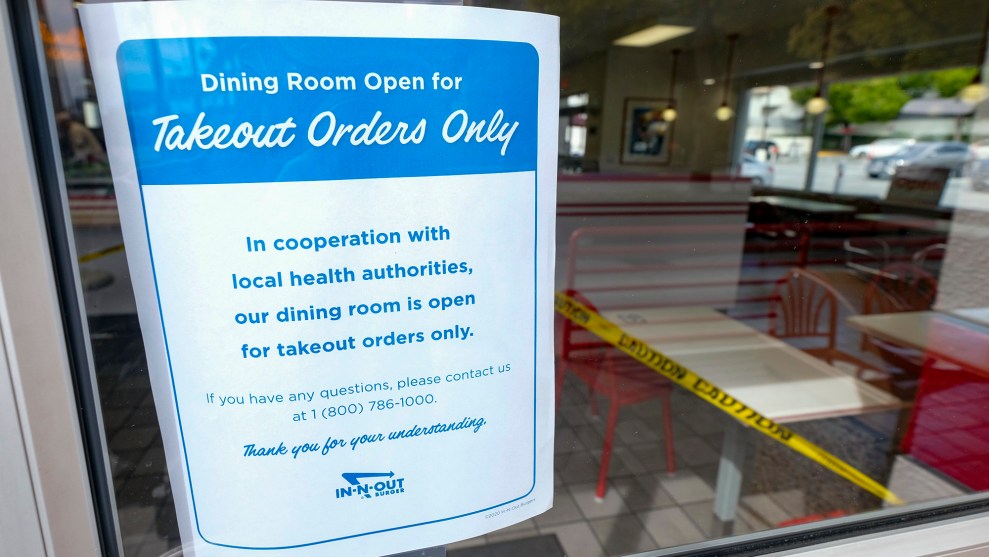
Ringo Chiu/ZUMA
This morning brings some Kevin bait:
@kdrum @Noahpinion
Its a great time to do full lead abatement across the entire country for $50bn— Traders Crucible (@traderscrucible) April 7, 2020
I think that any time is a good time to spend a big chunk of money on lead abatement. Future generations will thank us. Unfortunately, if there’s a worst time to do it, now is it.
The COVID-19 pandemic is throwing us into a recession, but it’s a purely technical, man-made recession. It’s not due to an oil spike or a dotcom bust or a housing bubble or even just a cyclical reduction in savings that causes households to cut back on spending. It’s due to specific government mandates that can be lifted at any time.
What this means is that we don’t need any kind of general economic stimulus. Household savings are high, consumer demand is fine, and there should even be pent-up demand working in our favor by summer. Instead, we need to specifically help the people and businesses who have been affected by the government mandates so that they can stay afloat until the emergency is over. This means:
- Workers who are laid off thanks to coronavirus restrictions.
- Small businesses that are shuttered for the duration.
- Large businesses facing revenue shortfalls.
- State and local governments who are losing revenue and facing higher expenditures.
- Hospitals and other health care providers.
Any follow-up rescue package—which we’ll probably need—needs to be directed toward these victims of the coronavirus lockdowns. A small amount of generalized stimulus—the $1,200 checks, for example—doesn’t hurt since any targeted program is bound to miss some people, but it shouldn’t be large and it shouldn’t be the focus of congressional action.
The exception to this might come later in the year. If the pandemic starts taking off in the global south just as the north is recovering, we might suffer a classic recession due to trade losses, supply chain disruptions, loan forfeitures, and so forth. If that happens, we might need a classic stimulus package to get us back on track. That would be the time for infrastructure projects and lead abatement. There’s no telling if we’ll need this, but it would certainly be wise to plan for the possibility by spending a few billion dollars now to identify and and do prep work for a trillion dollars worth of infrastructure.¹ When the time comes, it would be nice to have plenty of shovel-ready plans on the shelf ready to go if we need them.
¹Including lead abatement!















